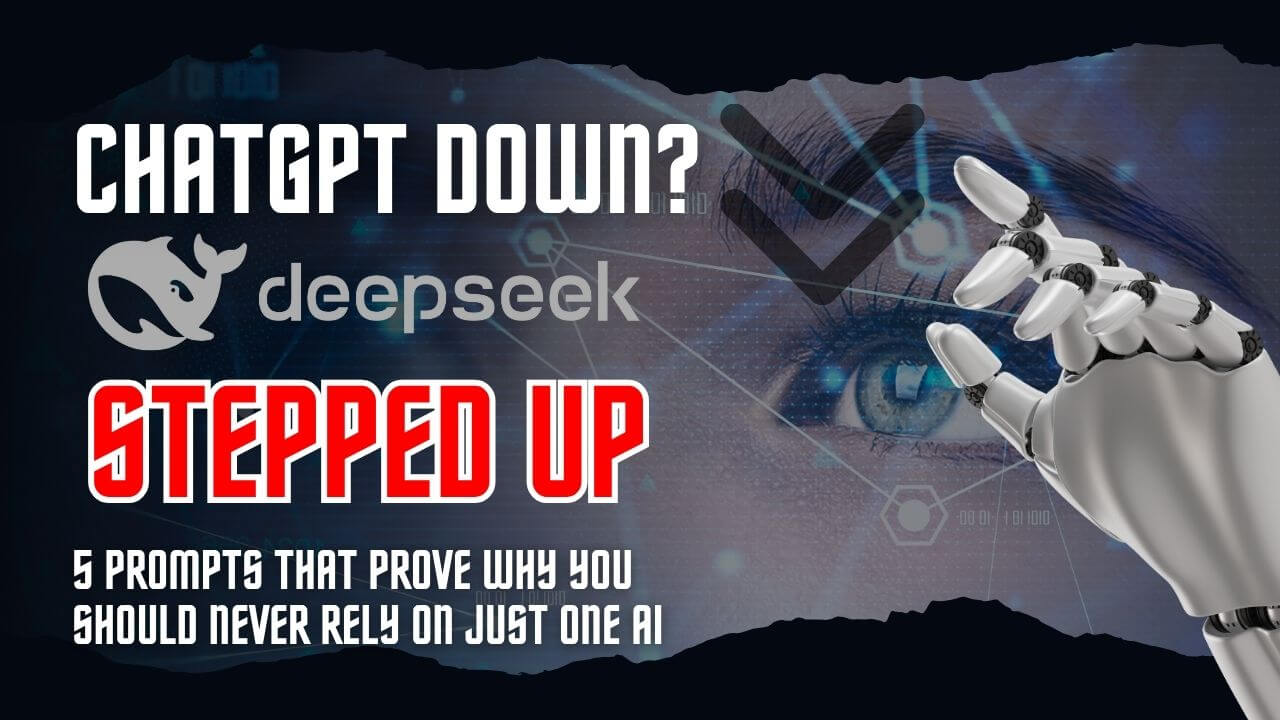From convenience stores to Claude 3.5—why asking obvious questions might be the smartest AI move Filipinos can make.
📰 Source Report Anthropic cofounder and chief science officer Jared Kaplan believes that asking “very naive, dumb questions” is the key to unlocking breakthroughs in AI. In a talk hosted by Y Combinator, Kaplan emphasized that AI is still an “incredibly new field” where many basic questions remain unanswered. His curiosity-driven approach led to the discovery of scaling laws, which now help predict AI performance based on model size and compute power.
Kaplan credits his physicist mindset—zooming out and asking the simplest possible questions—for this insight. He argues that such questions make big trends “as precise as possible” and give researchers powerful tools to move the needle in AI development. Anthropic’s Claude Sonnet 3.5 model, released in 2024, has since been praised for generating high-quality code that rivals human output.
You can read the full article on MSN News. Now, let’s jump into the editorial.
🧃 Clear Questions, Smart Systems: Where Pinoy Curiosity Meets AI Strategy
Anthropic cofounder Jared Kaplan didn’t start with complex jargon or flashy tech demos. He started with what he called “dumb questions.”
Like: “How big is big enough?” And that single question led to scaling laws—mathematical patterns that now help predict how well AI models will perform based on their size and computing power.
But here in the Philippines, we already live this mindset.
Whether it’s a sari-sari store owner wondering why a product doesn’t sell, or a barangay health worker simplifying data collection, asking the “obvious” question often unlocks the real solution. No dashboard, no expensive training—just clarity, humility, and quiet strategy.
🌱 5 Ways Simplicity Becomes Strategic in Filipino AI Thinking
1. “Dumb” Just Means You’re Not Pretending
Basic questions aren’t stupid—they’re strategic. When a store owner asks, “Why doesn’t this product move?” they’re practicing real-time data analysis. No MBA needed.
2. Humility Is Hidden Power
Kaplan approached AI like a physicist: zooming out, asking simple questions. Filipino community builders do the same—connecting public health, livelihood, and tech curiosity, often without trying to show off.
3. Gatekeeping Dies When You Simplify
You don’t need to know what “transformer architecture” means to ask, “Can AI make my reports faster?” That’s the real entry point. And it’s more useful than memorizing buzzwords.
4. System Builders Ask Simple, Deep Questions
From Bacolod cosplay organizers to disaster relief volunteers, Filipino strategists ask: “How does this really work, and how do we fix it?” It’s quiet intelligence, not noise.
5. Curiosity Scales. Complexity Doesn’t.
When young creators ask, “Can AI do my captions for me?” it might sound naive—but that spark leads to systems that automate, adapt, and support sustainable growth.
📚 Explain Like I’m 12: Scaling Laws, Claude 3.5 & Prompts
🌊 Scaling Laws
Training AI is like filling a water tank. The bigger the tank (model) and the stronger the hose (compute power), the faster it fills. But if the tank’s too big, you’re just wasting water. So you need balance.
🎤 Claude Sonnet 3.5
Think of Claude like a karaoke singer who’s practiced every genre. Sonnet 3.5 is the version that hits the right notes, adjusts to your rhythm, and even knows when to surprise you with harmonies.
🧩 Prompt Design
Writing a prompt is like giving directions to a friend who’s never been to your barangay. Be clear. Give landmarks. Don’t assume they know what “left at the mangga tree” means.
🎯 Tools, Not Theatrics
Before chasing the newest AI app, ask the “dumb” version:
- What do I actually need this tool to do?
- Can I explain it in five minutes?
- Will my mom understand the result?
These are the questions that lead to useful tools. To compounding value. To quiet success.
✊ Final Word: Strategic Simplicity Is Quiet Power
Kaplan used basic questions to reshape AI. Filipinos do the same—without seminars, hype, or hustle culture.
From sari-sari stores to creative collectives, our quiet questions cut through the noise. And in a digital world, chasing performance, that’s the kind of power that lasts.
📚 Primary Source
- MSN News: Anthropic’s Cofounder Says Dumb Questions Unlock AI Breakthroughs — Based on Jared Kaplan’s Y Combinator talk and his reflections on scaling laws and curiosity-driven research.
🧠 Supporting Sources on Strategic Questioning & Creativity
- Harvard Business Review: The Art of Asking Smarter Questions — Framework for strategic inquiry and decision-making.
- Think Jar Collective: The Art of the Dumb Question — Explores how naive questions fuel creativity and challenge assumptions.
- Entrepreneur: The Power of Asking Dumb Questions — Real-world examples of how “dumb” questions reveal hidden problems and unlock better solutions.
- Fast Company: Smarter Questions, Better Results — Highlights the decline in adult questioning and its impact on innovation.
- Acciona: The Art of Asking Smart Questions to Make Better Decisions — Offers a five-question framework for leaders navigating complexity.







